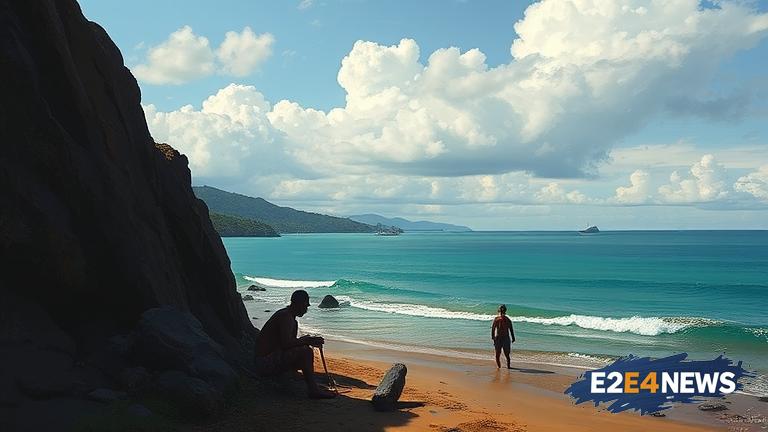A team of researchers has conducted an exhaustive study on the history of cannibalism in Vanuatu, and the results are surprising. Despite the presence of oral history references to the practice, no archaeological evidence has been found to support the claim. The study, which spanned several years, involved a thorough examination of historical records, archaeological sites, and oral traditions. The researchers found that while there are numerous accounts of cannibalism in Vanuatu’s oral history, these stories are often shrouded in myth and legend. In fact, many of the stories about cannibalism in Vanuatu can be attributed to the influence of European colonizers, who often used the practice as a way to justify their conquest of the island. The researchers also found that the concept of cannibalism was often used as a metaphor for the ‘other’, with the practice being associated with the unknown, the savage, and the uncivilized. However, when it comes to concrete evidence, the researchers came up empty-handed. No human remains have been found with signs of cannibalism, and no artifacts have been discovered that would suggest the practice was widespread. The study’s findings have significant implications for our understanding of Vanuatu’s history and culture. For too long, the notion of cannibalism has been used to define the island nation, with many assuming that the practice was a central part of Vanuatu’s cultural identity. However, the study reveals that this is not the case. In fact, the researchers found that Vanuatu’s cultural identity is far more complex and nuanced than previously thought. The study also highlights the importance of critically evaluating oral history and the need to separate fact from fiction. By doing so, we can gain a more accurate understanding of the past and avoid perpetuating harmful stereotypes. The researchers also noted that the lack of archaeological evidence does not necessarily mean that cannibalism never occurred in Vanuatu. However, it does suggest that the practice was not as widespread as previously thought. The study’s findings have been met with a mix of reactions, with some hailing the research as a major breakthrough, while others have expressed skepticism. However, one thing is clear: the study has challenged our understanding of Vanuatu’s history and has sparked a new wave of interest in the island nation’s cultural identity. As researchers continue to study the history of Vanuatu, it is likely that we will uncover even more surprises. The island nation’s complex and nuanced cultural identity is slowly being revealed, and it is an exciting time for scholars and researchers. The study’s findings also have implications for the field of archaeology, highlighting the importance of rigorous methodology and the need to approach oral history with a critical eye. By combining archaeological evidence with oral history, researchers can gain a more complete understanding of the past. The study’s findings are also a reminder that history is complex and multifaceted, and that our understanding of the past is always subject to revision. As we continue to learn more about Vanuatu’s history, it is likely that our understanding of the island nation will continue to evolve. The study’s researchers are now calling for further research into the history of Vanuatu, with a particular focus on the island nation’s cultural identity. By doing so, we can gain a more nuanced understanding of the past and avoid perpetuating harmful stereotypes. The study’s findings are a significant contribution to the field of archaeology and will likely be of interest to scholars and researchers for years to come.
